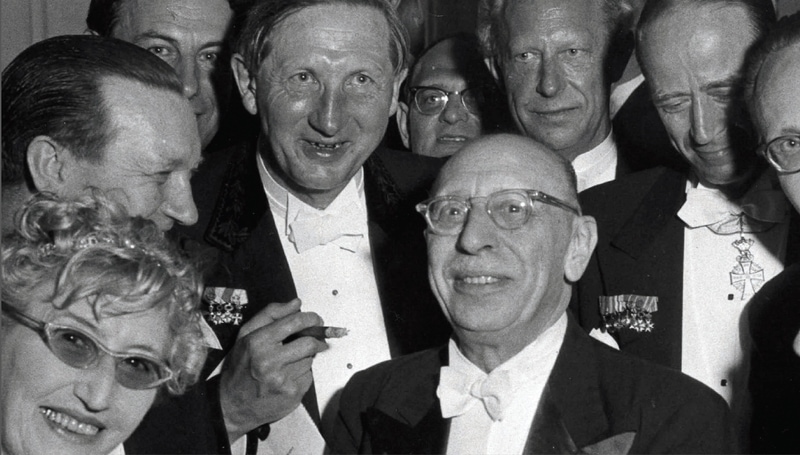About the foundation
The foundation was established in 1965 by Léonie Sonning (née Rothberg, 1894-1970), the widow of editor Carl Johan Sonning. As early as 1959, however, before the foundation had officially been established, a music prize had been awarded to the composer Igor Stravinsky. The composer Knudåge Riisager handed over the prize at a concert given by The Royal Danish Orchestra at Tivolis Koncertsal, where Stravinsky conducted his own works.

Did you know that Léonie Sonning wanted the Music Prize to be presented on her wedding day.
Where does the money come from?
The foundation’s assets originally derived from the income from three properties that belong to Léonie Sonning. The executive committee of the foundation has administered these assets since it was first set up, and the present-day economic basis of the foundation is the income from five residential properties in and around Copenhagen.
The foundation’s purpose
The charter of the foundation sets out its aim: Each year a mark of distinction is to be awarded to an internationally recognised composer, musician, conductor or singer. This prize amounts at present to 1,000,000 Danish kroner, awarded at a concert, primarily in Copenhagen.
In addition, the foundation awards talent prizes in order to further the artistic development of young composers, musicians, conductors, or singers from Denmark and the other Nordic counties. Currently, approximately 10 talent prizes of 100,000 Danish kroner each are awarded in accordance with the statutes. The talent prizes cannot be applied for The prizes cannot be applied for.
The Léonie Sonning Music Foundation & The Sonning Foundation
These are two different funds. Editor Carl Johan Sonning, who died in 1937, decided in his will that part of his fortune should go to a foundation called the Sonning Foundation. Its purpose is partly to award the Sonning Prize to Danish or foreign cultural personalities, and partly to support “non-profit cultural purposes, in particular to support the restoration or reconstruction of historic buildings and for musical purposes”. In contrast, the purpose of the Music Foundation is to award the annual Music Prize and the above-mentioned talent prizes to young musicians. ”
More about the prizes
According to the foundation’s, the foundation’s main purpose is to annually award a music prize as a gift of honor that cannot be applied for. At the award ceremony, “purely musical qualifications can only be taken into account, and all questions of nationality, race, religion, political opinion or economic position must be disregarded”.
The Léonie Sonning Music Prize focuses on classical music. However, this should be understood broadly: as music and its boundaries continue to evolve, the board selects candidates from across the classical music spectrum. Emphasis is placed not only on artistic excellence but also on the recipient’s ability to leave a personal and lasting impact on the development of the art form classical music.
Talent prizes are primarily awarded to young composers, musicians, conductors, or singers residing in Denmark. As these prizes support artistic development, recipients must submit a plan that is subject to board approval.
